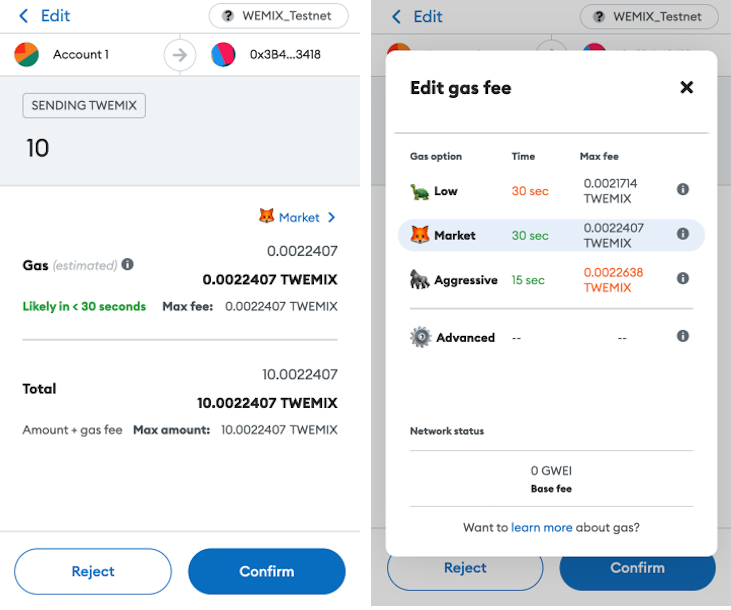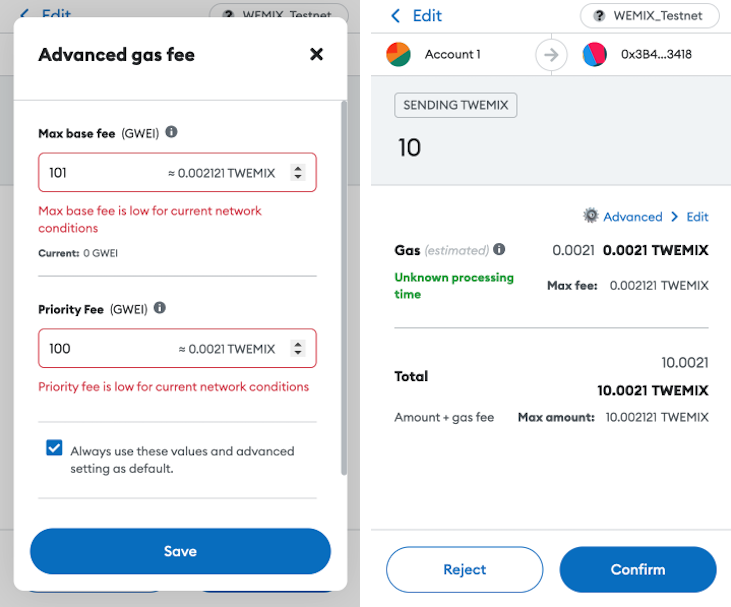Gas
What is Gas?
'Gas' is a unit of measurement for performing transactions or executing smart contracts in a blockchain network. Every action performed in a blockchain network costs gas. The gas cost depends on the complexity of the contract and the speed at which it is carried out. If you want to perform a transaction quickly, you can pay more gas than the base gas cost, and if you like to do it slowly, you can pay only the base gas cost.
Gas costs are important because transactions submitted to the network help to pay appropriate fees. By requiring a transaction to pay for each action it performs (or by allowing a contract to be performed), the network performs many intensive tasks that are of no value to anyone, so that it does not get bogged down.
Gwei
The unit of gas cost is Gwei. It is calculated as 1 WEMIX = 1 billion Gwei. When a transaction occurs, the higher gas cost, the first recorded in the block, and the block creator will receive a fee as a reward. In a blockchain, the minimum unit is calculated as wei, 1 WEMIX = 10^18wei. Since wei has many digits, it is expressed in Gwei units.


Base Fee
Base Fee is the minimum amount to be paid as a basic fee. These costs are not fixed, and if there were a lot of transactions in the previous block, the minimum payment would be higher, and if there were less transactions, the cost would be lower. Base Fee was previously paid as compensation to the block creator, but has been incinerated after EIP-1559 reflection.
Gas Limit
Limits are set to limit gas costs. If the gas cost is insufficient to perform the transaction, the transaction will fail. Therefore, it is desirable to pay an appropriate amount of gas cost. If the gas cost exceeds the limit, the excess fee after the block creation will be returned.